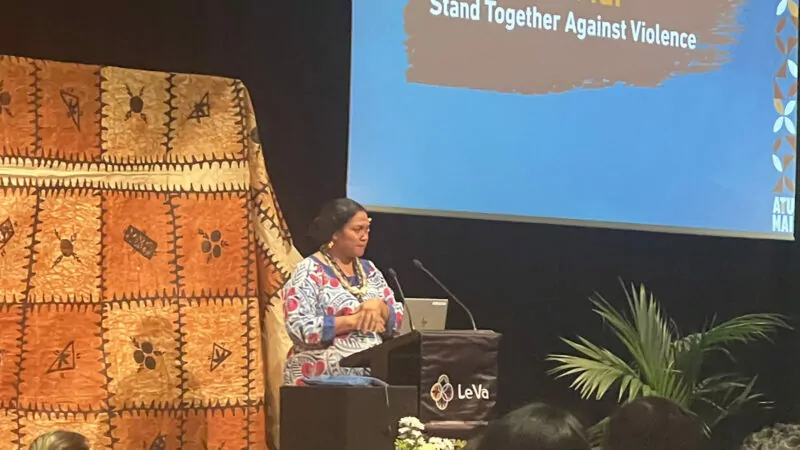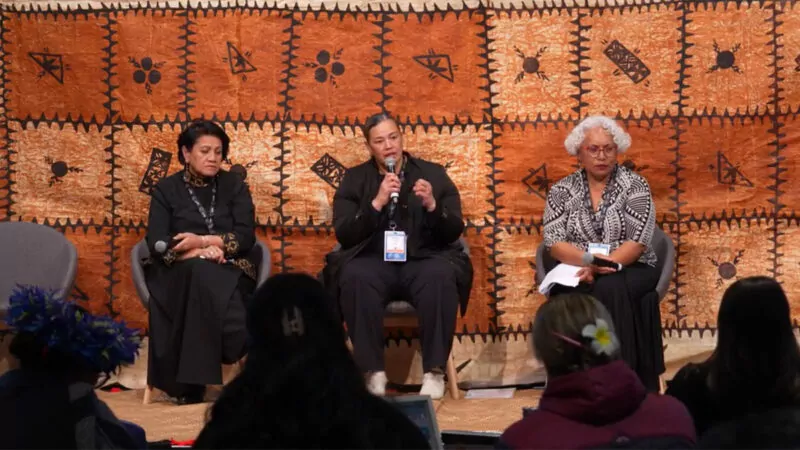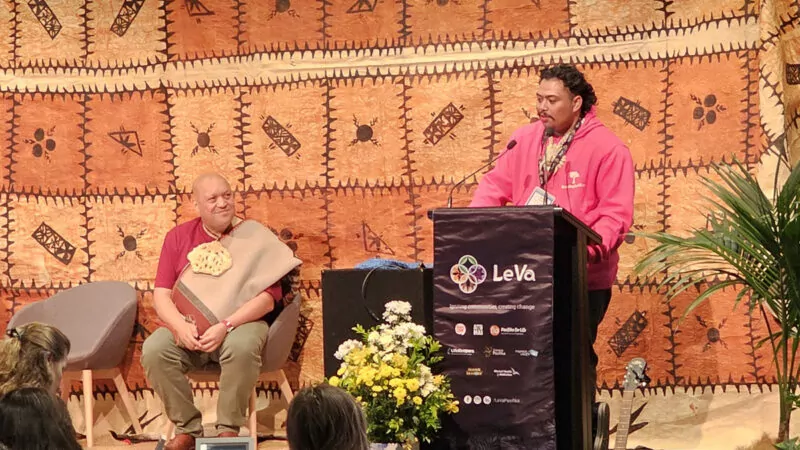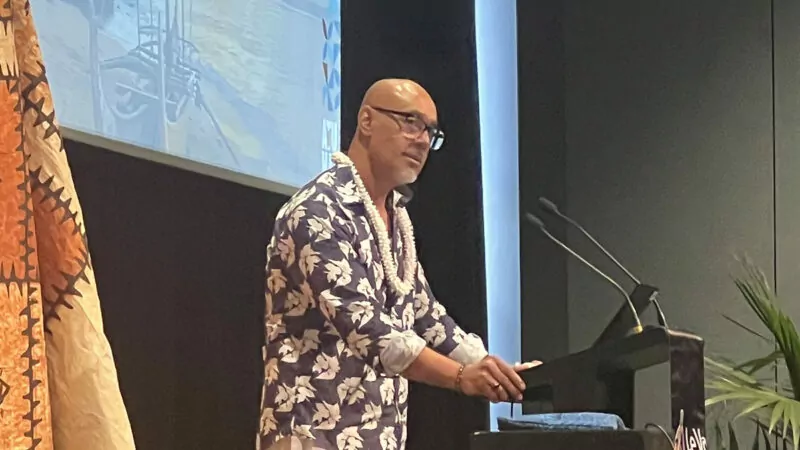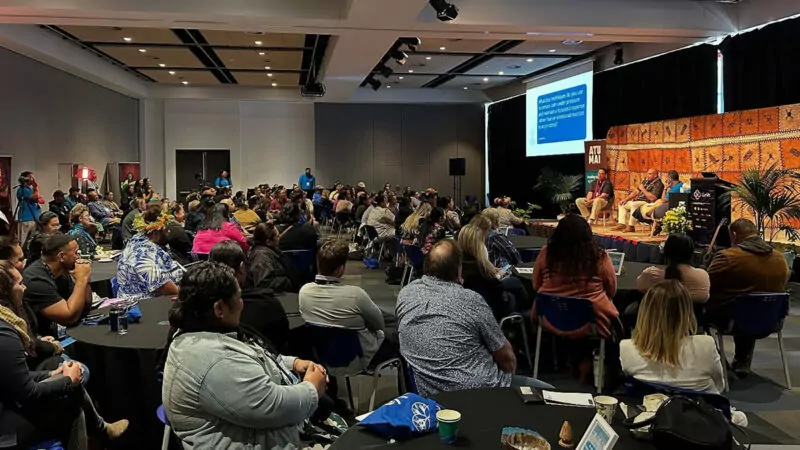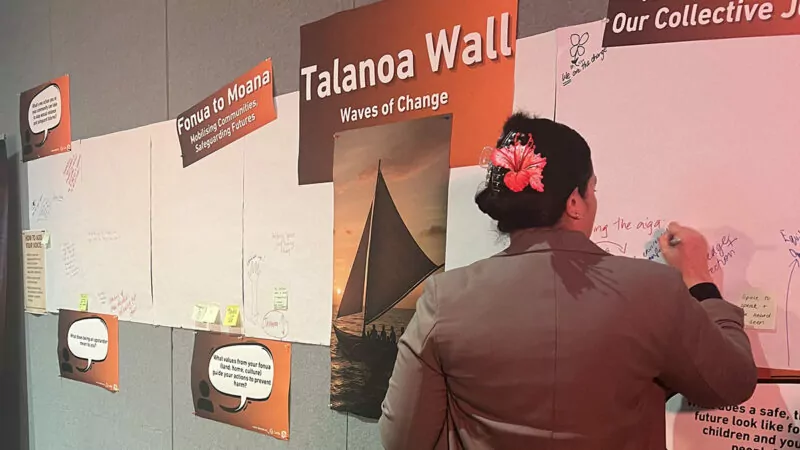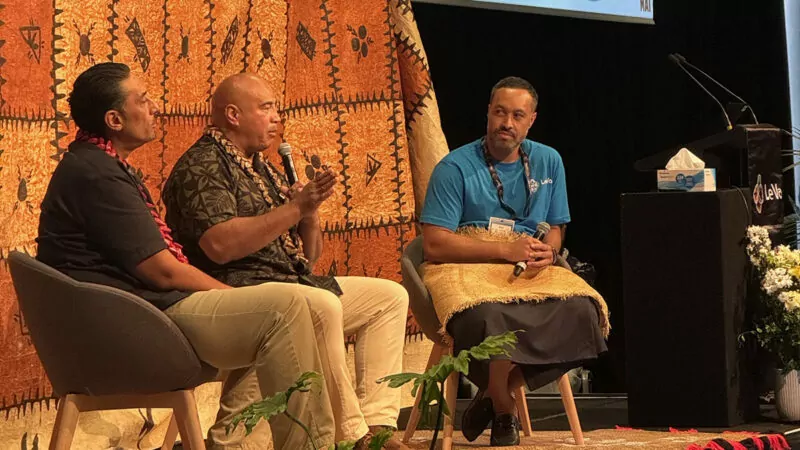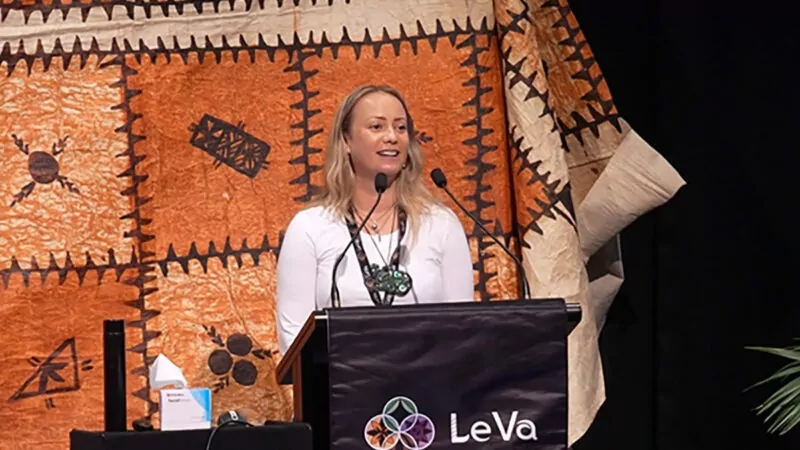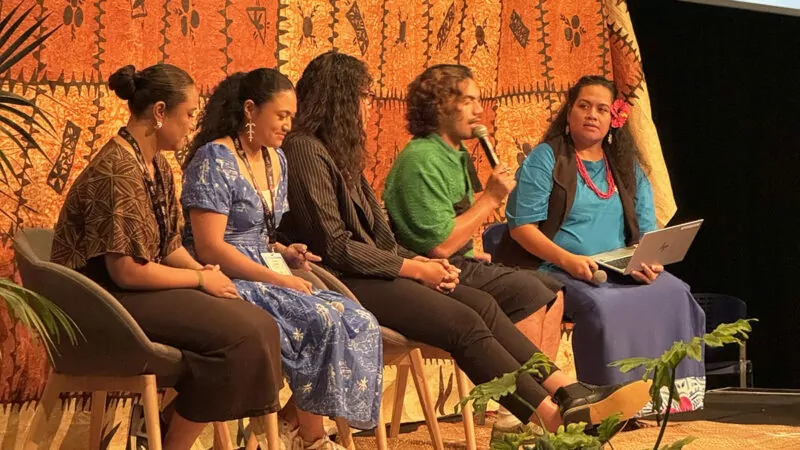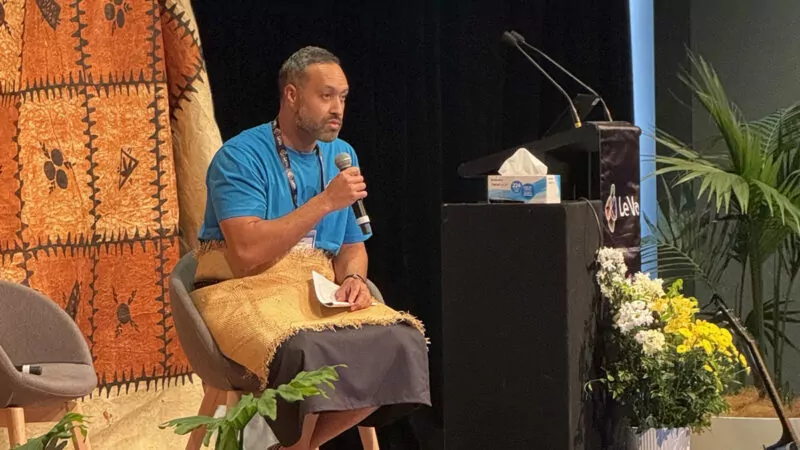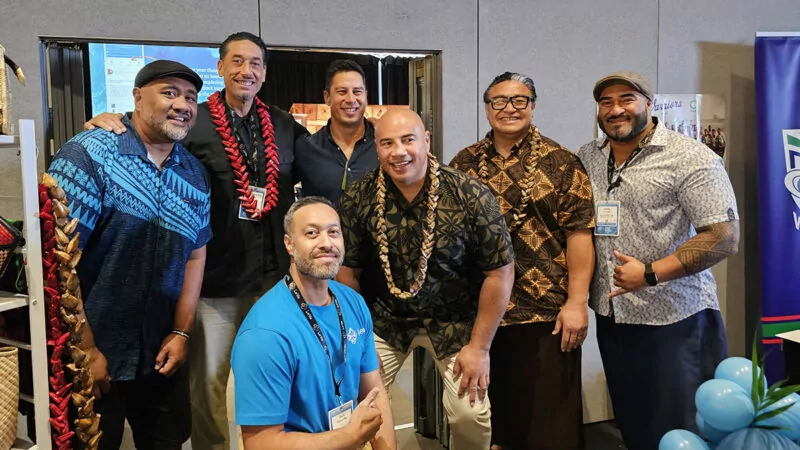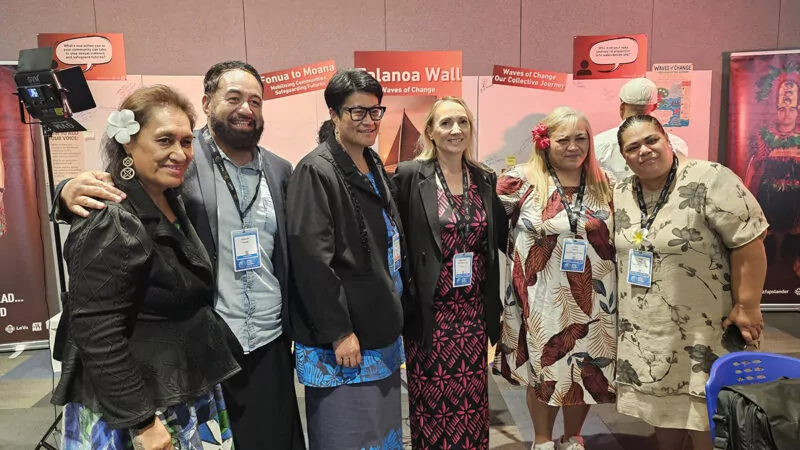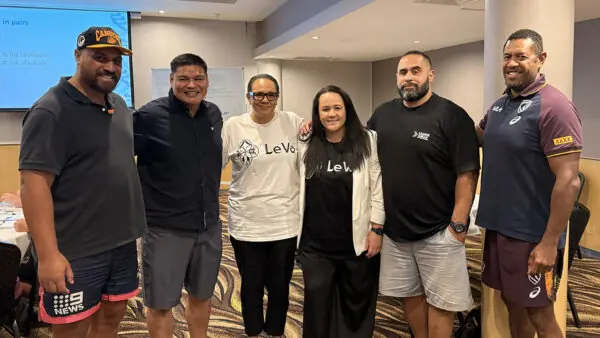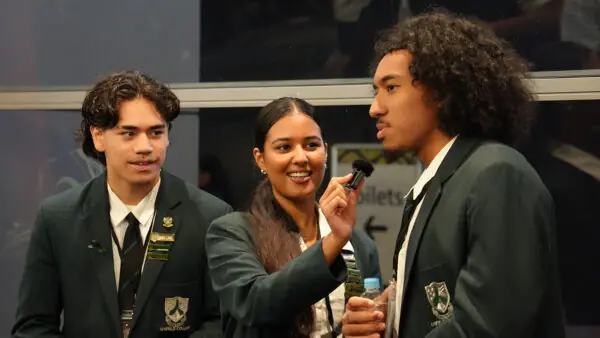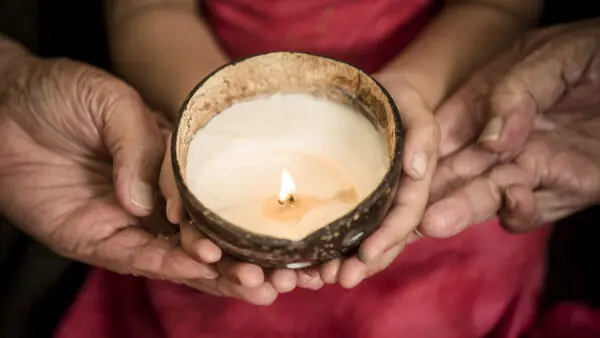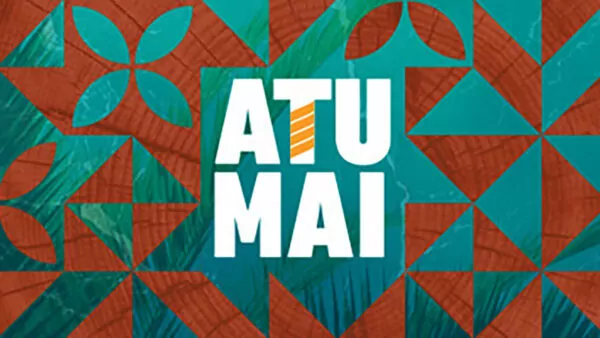GPS 2025: Fonua to Moana violence prevention stream
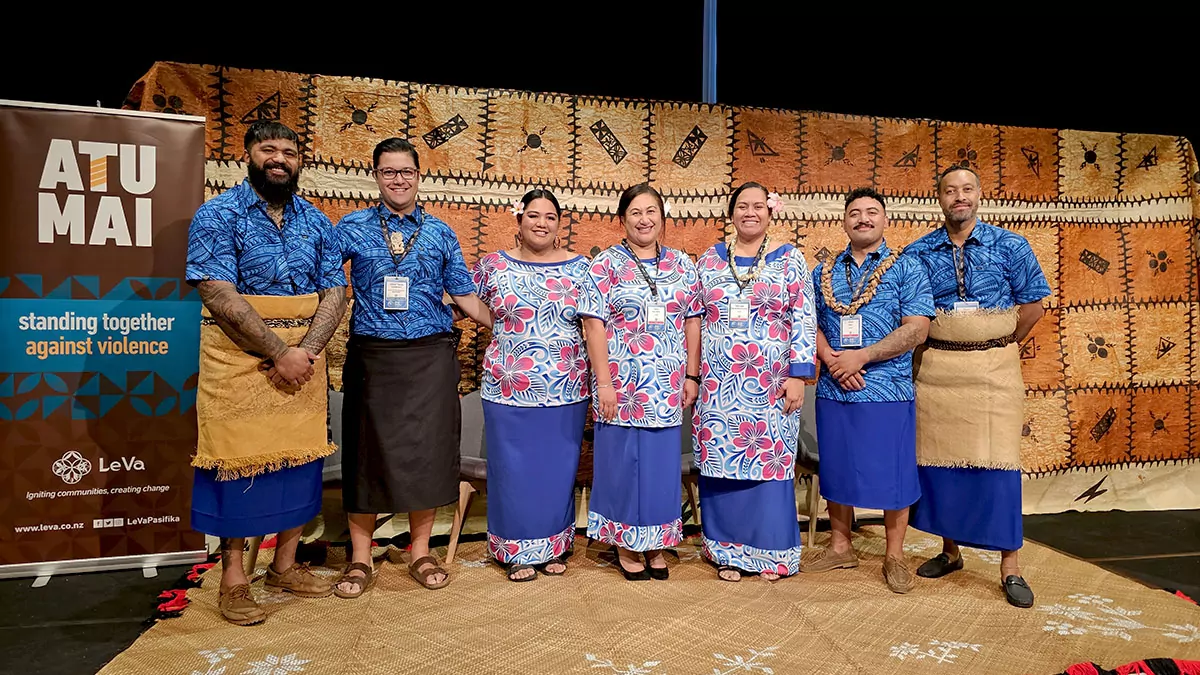
The Fonua to Moana stream at Le Va’s 2025 Global Pacific Solutions conference provided a focused platform for advancing Pacific-led approaches to the primary prevention of sexual violence and child sexual abuse.
Grounded in Pacific values and knowledge systems and anchored in the theme “Mobilising Communities, Safeguarding Futures”, the stream brought together practitioners, youth, community leaders and system stakeholders to strengthen partnerships, challenge cultural silence and build sustainable solutions to protect tangata moana.
Day One
Day One focused on community-led action and systems-level change to prevent sexual violence. Sessions highlighted the power of cultural knowledge, the importance of supporting Māori and Pacific male survivors, and the need for stronger cross-sector collaboration. The day reinforced that prevention must be grounded in indigenous values, led by communities and supported by systems that are responsive and inclusive.
“Our communities already have the solutions, they just need support with systems and resources for them to mobilise and create change in their own communities.”
Ailupotea Taituuga Mirofora Mataafa-Komiti shared highlights from Le Va’s community mobilisation work alongside community Upstanders, focused on activating communities to engage in learning about healthy relationships, consent, sexual violence, child sexual abuse and positive parenting.
She launched Atu-Mai’s “Nurturing our Children” child sexual abuse prevention resources and emphasised Le Va’s approach, which ensures that all initiatives are culturally relevant, clinically safe and community led.
“The Bros need to see Bros in these spaces, so they feel seen.”
Dr Alexander Stevens II highlighted the unique risk factors and challenges experienced by Māori and Pacific men. He also emphasised the nuances and complexities of sexual violence experiences for men and boys who identify as Rainbow, people with disabilities and those of lower socio-economic status. As an advocate of mentoring the next generation of leaders, Dr Stevens II invited his student and mentee, Sione Finau to share his perspective and experiences as a young Pacific man navigating these spaces.
“We need to prioritise primary prevention and in all simplicity, that begins at home with our own children.”
The ‘Sexual Violence Sector and Systems’ panel, featuring Sylvia Yandall (HELP), Serena Curtis (MSD) and Liz Tanielu (Te Puna Aonui), explored how effective violence prevention requires recognising both strengths and gaps within current systems.
The panellists emphasised that prevention must be a shared responsibility across all levels of the system, with cultural knowledge positioned not as an add-on, but as essential infrastructure for sustainable, community-led change.
Day Two
“It is our responsibility to role model what healthy masculinity looks both on and off the field. Make our boys know that it is okay to not be okay. There is no judgement.”
‘Growing Men Who Are Upstanders’ was a session that explored the influential role of men, particularly within sports, in shaping and sustaining healthy gender norms. Jerry Seuseu (NZRL, Wellbeing Manger) and PJ King (Basketball Foundation Limited, Director) addressed how culturally grounded models of masculinity, rooted in values such as alofa (love), fa’aaloalo (respect) and tautua (service) can be powerful tools in challenging harmful norms and promoting protective behaviours.
By moving away from the expectation to “harden up” and positioning men as key allies, the stream contributed to a shift towards normalising vulnerability as strength and supporting the emotional wellbeing of young men as an essential part of violence prevention.
“Our communities hold the solution. We need to engage and get them involved as they know what works best for them.”
Dr Jade Le Grice delivered a compelling kōrero on the importance of reclaiming Māori understandings of sexuality, wellbeing and safety as essential to preventing sexual violence. Framing the conversation through tikanga and mātauranga Māori, she explored how traditional concepts such as ‘tapu’ and ‘noa’ offer culturally rooted protective factors, and the impact of colonial disruption on current experiences of harm. She called for prevention approaches that centre Indigenous knowledge, strengthen whānau-led solutions and restore balance through cultural reconnection.
“Youth are not waiting for tomorrow, they are already out there leading and influencing change for our people. As parents and elder, you just need to give us the space to thrive.”
Our youth-led panel brought powerful insight and honesty to the forefront of the violence prevention conversation. Pelea Fruean, Kasi Valu, Mariner Fagaiva and Nele Kalolo shared the realities of navigating consent, identity and relationships while confronting silence, stigma and outdated norms. They called for open, intergenerational dialogue and safer spaces where young people can speak and be heard without fear or shame.
Their messages were clear: prevention starts with honest conversation; culture must evolve to protect rather than silence; and being an upstander is not just a role, it’s a responsibility. This session reinforced that young Pacific leaders are not waiting for permission to lead change, they are already doing it.
